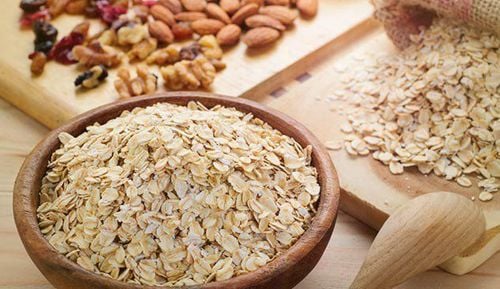Sulfur is one of the primary elements in the atmosphere and is an essential component of many foods. What are the health benefits of sulfur-rich foods?
1. What is sulfur?
Sulfur, calcium, and phosphorus are the three most abundant minerals in the human body. Sulfur plays an important role in important bodily functions such as:
- Protein synthesis
- Gene expression regulation,
- Constructing and repairing DNA
- Metabolism.
- Sulfur is crucial for producing and recycling of glutathione, a powerful antioxidant that reduces inflammation and protects cells from damage
- Maintaining the integrity of connective tissues such as skin, tendons, and ligaments.
Sulfur can be found in a variety of foods, drinks, and natural water sources. Certain medications and supplements, like antibiotics, painkillers and joint medications, also contain sulfur.
2. Sulfur-rich foods and beverages

Sulfur is present in a wide variety of foods, with particularly high levels found in:
- Cattle and poultry: Especially beef, ham, chicken, turkey, duck and organ such as heart, liver,...
- Fish and seafood: Most types of fish, as well as shrimp, scallops, and clams, are rich in sulfur.
- Legumes: Especially soybeans, black beans, kidney beans, peas, and white beans contain high levels of sulfur.
- Nuts: Especially almonds, peanuts, walnuts, pumpkin seeds and sesame are high in sulfur.
- Eggs and Dairy: All types of eggs, cheese, and cow's milk contain high levels of sulfur.
- Dried fruit: Especially dried peaches, apricots and figs are also sulfur-rich foods.
- Certain vegetables: Especially asparagus, broccoli, red cabbage, Brussels sprouts, leeks, onions, radishes, and watercress.
- Certain grains: Especially pearl barley, oats, wheat, and flours made from these grains are all rich in sulfur.
- Certain beverages: Especially beer, cider, wine, coconut milk, grape juice and tomatoes, are high in sulfur.
- Condiments such as Mustard, marmite, curry powder ,and ground ginger contain high levels of sulfur.
Drinking water, especially from wells, can contain varying levels of sulfur depending on your location.
Additionally, sulfites, a sulfur-based food preservative, are commonly used in the packaging of foods such as jams, pickles, and dried fruits to extend shelf life. Sulfites can also naturally occur in fermented foods and beverages like beer, wine, and cider.

3. What are the health benefits of sulfur?
3.1. Health Benefits of Sulfur-rich foods
Sulfur plays an important role in gene expression and maintaining tissue integrity. It helps metabolize food and protects against inflammation and oxidative stress. In addition, sulfur-rich foods often contain a variety of other nutrients and healthful plant compounds. Eliminating these foods from your diet can make it more challenging to meet your daily nutritional requirements.
In particular, sulfur-rich foods such as garlic and cruciferous vegetables can help protect against diseases like type 2 diabetes, heart disease, and cancer, as well as age-related cognitive decline.
However, incorporating sulfur-rich foods into your daily diet should be done in moderation. Consuming excessive amounts of sulfur can lead to adverse health effects.
3.2. Adverse effects of excessive sulfur intake
Although you may have been following a diet with adequate amounts of sulfur, which is essential for health, consuming excessive amounts of this mineral can lead to some adverse effects such as:
- Diarrhea: Drinking water with high sulfur content can cause loose stools and diarrhea. When there is too much of this mineral in your drinking water, it can also give it an unpleasant taste and a smell similar to rotten eggs. On the other hand, there is currently no strong evidence to suggest that consuming large amounts of sulfur-rich foods will have a laxative effect.
- A sulfur-rich diet can worsen symptoms in people with ulcerative colitis or Crohn's disease. These are two inflammatory bowel diseases that cause chronic inflammation and ulcers in the intestine. Recent research suggests that sulfur-rich foods can promote the growth of sulfate-reducing bacteria (SRB) in your gut. These bacteria release sulfide, a compound believed to disrupt the gut barrier and cause damage and inflammation. However, not all sulfur-rich foods have the same effect. For example, while a sulfur-rich diet high in animal-based foods and low in fiber can increase levels of sulfate-reducing bacteria, a type of vegetable high in sulfur has the opposite effect. Additionally, there are many other factors besides sulfur content in food that can affect the balance of gut bacteria. Therefore, more research is needed before definitive conclusions can be drawn.

3.3. Sulfur-Based preservatives: A concern for sensitive individuals
Previously, some people reported feeling better when following a low-sulfur diet. However, current research on sulfur intolerance is limited. Current studies are focused on the side effects of sulfites, a sulfur-based preservative added to some alcoholic beverages and packaged foods to prevent spoilage and extend shelf life.
Approximately 1% of people who consume these foods are sensitive to sulfites and may experience symptoms such as itching, hives, swelling, nausea,, or asthma-like symptoms when exposed to foods high in sulfites. In some cases, seizures or anaphylactic shock may occur. Individuals sensitive to sulfites should avoid foods containing these substances. However, there is currently little evidence to suggest that these individuals also need to limit foods high in sulfur. If you are sensitive to sulfites, be sure to check food labels and avoid ingredients such as: sodium sulfite, sodium bisulfite, sodium metabisulfite, sulfur dioxide, potassium bisulfite, and potassium metabisulfite.
In conclusion, Sulfur is a vital mineral that plays a crucial role in DNA repair and other bodily functions. A diet rich in sulfur-containing foods supports overall health.
To arrange an appointment, please call … or make your reservation directly HERE. You may also download the MyVinmec app to schedule appointments faster and manage your reservations more conveniently.
Reference: healthline.com







